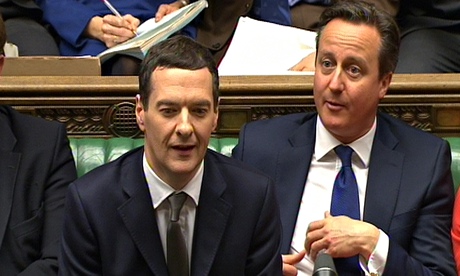Britain is about to become a member of a club it has avoided joining for six decades – that of nations with a 100% debt-to-GDP ratio.
Such is the size and scale of the rescue packages needed to prevent the energy crisis overwhelming millions of families and avoid thousands of businesses going bust, a debt ratio that shot up from 83% to 94% in the first months of the pandemic and touched almost 104% in 2021, is now on course to stay in three figures for the rest of the decade.
Successive Tory chancellors have tried to prevent the national debt from growing to the size of the UK’s £2.2tn annual national income (gross domestic product).
This is not how households think about their debts. Most people with a mortgage would have a debt-to-income level in excess of Japan’s 263% if they measured the size of the outstanding loan against their yearly income. However, debt-to-GDP has become the measure by which international investors judge a government’s ability to pay its way. And so international lenders are ever watchful of government spending deficits, because if they exceed economic growth, the debt mountain will increase.
Paul Dales of Oxford Economics says a brief drop in the UK’s debt-to-GDP ratio below 100% this year will prove to be temporary: “In four or five years’ time it will seem normal for the UK to have a ratio above 100%.”
In his first budgets as chancellor, from 2010, George Osborne worked every trick to prevent the ratio exceeding 100% and then to bring it down. Rishi Sunak was of the same mind until the pandemic forced him to spend an extra £400bn.
Philip Shaw of Investec says investors were concerned more about the government’s strategy than the level of debt: “I don’t take a Micawberish attitude and say 99% good, 101% bad. But the higher the debt, the more you pay in interest and the harder it is to ever bring it down again.”
Developed countries in the 100% club are a motley lot: Cyprus, France, Belgium, Spain, Portugal, Greece and Italy, plus Canada, Japan and the US.
But according to Shaw, it is not the level of debt, but what governments do with borrowed money that counts.
Alistair Darling, Labour’s chancellor during the 2008 financial crash, says investors want to see a coherent plan: “When the banks collapsed, I wanted to convey to the markets that while we needed to spend a large amount of money to rescue the economy, equally we had a sensible and coherent plan to bring down the deficit, and one that encouraged growth.”
French president Emmanuel Macron has defended his country’s 114% ratio, saying the extra debt since he took office in 2016 has been used to invest in skills, increase tax breaks for investment and help families through the pandemic. This is similar to Gordon Brown’s golden rule when chancellor: that extra borrowing was allowed only to support investment.
Dales says Liz Truss’s plan to boost growth by cutting income and corporation tax is flawed: “I’ve seen no evidence that tax cuts are self-financing.”
Shaw is concerned that months of inaction by the government – making investors even more nervous – means Britain will suffer a deeper and longer recession than many other industrialised nations.
He says the UK’s lack of credibility can be seen in the rising level of interest the government pays on its debts, and the fall in sterling.
Since Russia invaded Ukraine, the pound has fallen from $1.36 to $1.16 and is heading towards parity. With the UK so dependent on imported raw materials and components, a weak pound increases inflation. High inflation, higher debt, a recession and an energy crisis put the UK in a uniquely difficult position.











